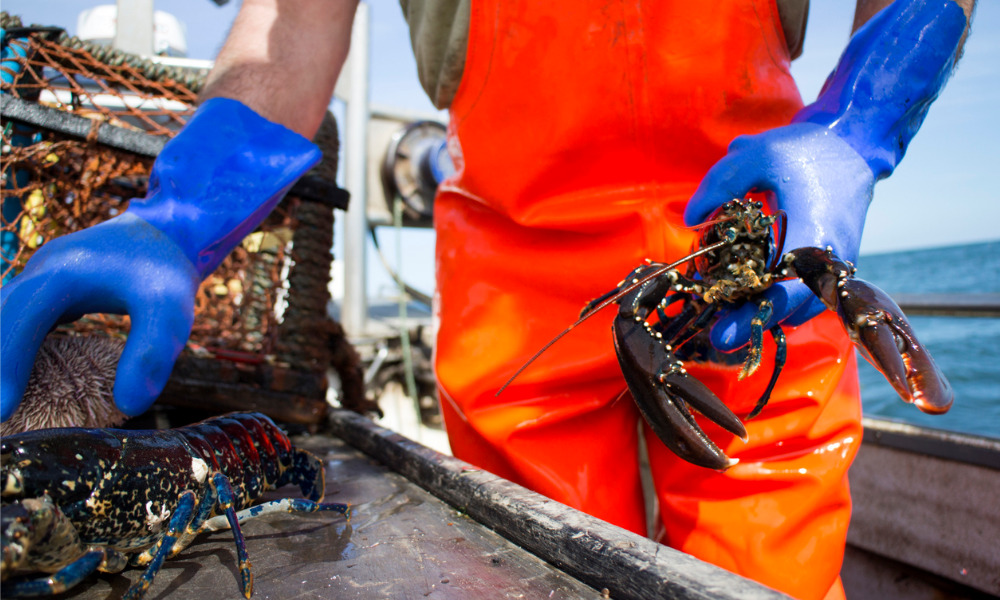In a seismic shift threatening the very foundation of the fishing industry in Maine, China has ramped up its trade war against the United States by introducing stringent tariffs on American lobsters, leaving local fishermen scrambling for a lifeline. What was once a thriving sector that nourished families and invigorated coastal towns is now teetering on the brink of collapse due to a cascade of trade mistakes and political maneuvering that has left them out in the cold—at the mercy of competitive Canadian counterparts benefiting from favorable trade agreements.

As American lobster stocks pile up on Maine’s docks with no buyers willing to absorb the increased costs from tariffs, the urgency of the situation can’t be understated. The simple act of fetching lobsters from the sea has transformed into a complex battleground rife with international rivalries that have devastated the livelihoods of those who have made a living off this trade for generations. The economy of Maine now hangs in the balance, and the stakes have never been higher.
The situation escalated quickly: Canadian vessels, having skillfully secured lucrative contracts and trading advantages through strategic negotiations, are now flood the European market with lobster. Maine’s prized crustacean, once adored in kitchens across Paris and Berlin, faces an existential threat from its increasingly competitive Canadian neighbors who make a case that there’s no contest—a claim reinforced by numbers reflecting a vast imbalance in trade dynamics. In mere months, what was a bi-national commodity has become a heated rivalry shaped by the hand of politics rather than skill.

In towns across Nova Scotia and Prince Edward Island, the fishing community has seen a resurgence, fueled by a demand for Canadian lobster that has surged in popularity and prestige across the Atlantic. Meanwhile, back in Maine, fishermen’s cries for help grow louder by the day, as loyal European buyers abandon their ships filled with American catching in favor of Canadian alternatives—products offered at more attractive prices now allowed by tariff-free access cemented during negotiations that U.S. trade officials have been unable to replicate.
This prompted fierce resentment among American fishermen, who accuse their Canadian neighbors of winning the market battle through political maneuvering rather than through any inherent superiority of their catch. The reality is undeniable: while the quality of American lobster remains near unrivaled, the U.S. has been forced to grapple with an evolving landscape where trade deals, not seafood quality, determine the marketplace’s winners and losers.
The fallout is immediate, with empty ships returning to Maine harbors once filled with hope. Prices have plummeted, and the cascading impact on local businesses is palpable; restaurants, suppliers, and vendors who thrived on lobstering are now staring at grim prospects as barrels of unsold lobsters remain stacked high, awaiting an uncertain future.
On the political front, candidates in Maine have seized upon the despair, quickly pledging alliances with the fishermen to fight for the survival of a way of life entrenched deeply in the region’s culture and identity. Political rallies now revolve around the catch, with Washington’s leaders pledging to safeguard what is perceived not just as an economic issue but as a matter of cultural pride and heritage. Yet, the usual political promises ring hollow as the harsh reality sinks in—despite fervent campaign speeches, the damaging effects of Canadian policies bear down on the fishermen like an anchor.
Maine’s lobster industry has become a rallying cry, often highlighted by high-profile political figures, including former President Donald Trump, who positioned himself as an advocate for the struggling fishermen. But empty promises for retaliatory tariffs or tough negotiations have failed to yield the desired results, with the European market showing staunch loyalty toward Canadian products. It’s a striking irony that as lobstering has defined the identity of communities, it has also evolved into a political weapon wielded in favor of mere rhetorical support without tangible outcomes.

Political and market dynamics, however, are just part of a larger narrative shaping the future of lobstering. The recent introduction of additional tariffs by China on American seafood, compounded by the rising cost of essential supplies like steel due to ongoing trade tensions, threatens to squeeze the Maine lobster industry even further. What once provided generations of families a pathway to sustenance now feels like a cruel joke, as fishermen grapple with the reality that the survival of their trade lies in the hands of distant bureaucrats.
As the situation grows increasingly dire for Maine’s lobster industry, many families find themselves pivoting toward different futures, with children of fishermen questioning the wisdom of continuing a time-honored legacy that feels increasingly precarious. While Canada continues its upward trajectory, finding lucrative markets in Asia and further cementing its foothold globally, Maine’s communities are left grappling with dwindling revenues and soured relationships from buyers who have abandoned them for more accessible Canadian options.

At the heart of this crisis is a complex story about how trade dynamics can ripple through communities far removed from the negotiating tables where agreements are struck. The lobster became a powerful symbol of what it means to lose not just an income but a way of life, illustrating how the tides of political maneuverings can alter conversations about identity, trust, and regional prosperity. Locals are left mourning a legacy that feels forsaken, their future determined not by the depth of their nets but by nuances in trade policy crafted hundreds of miles away.
As the clock ticks for Maine’s lobster fishermen and their families, the story burgeons with unanswered questions: Can Washington rally to restore market access and revive the lobster industry before it’s too late? Or will Canada’s carefully crafted trade strategies cement a dominant position that relegates American lobsters to an ever-narrowing market share? With pressure mounting and the situation evolving daily, industry stakeholders are left to wonder whether any glimmer of hope remains on the horizon or if they are doomed to remain at the mercy of negotiations happening outside their waters.
The lobsters may be thriving under Canadian flags, but the lifeblood of coastal Maine hangs dangerously in the balance, and the next wave of political action must come swiftly to avert a disaster decades in the making. Desperately counting down the seconds as they brace for the fallout, fishermen echo the sentiment rippling through all those who depend on the sea: the outcome of this struggle will define not just their future but the essence of a heritage they hold dear.





